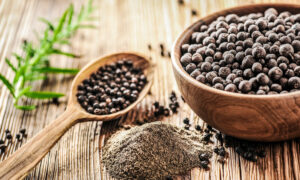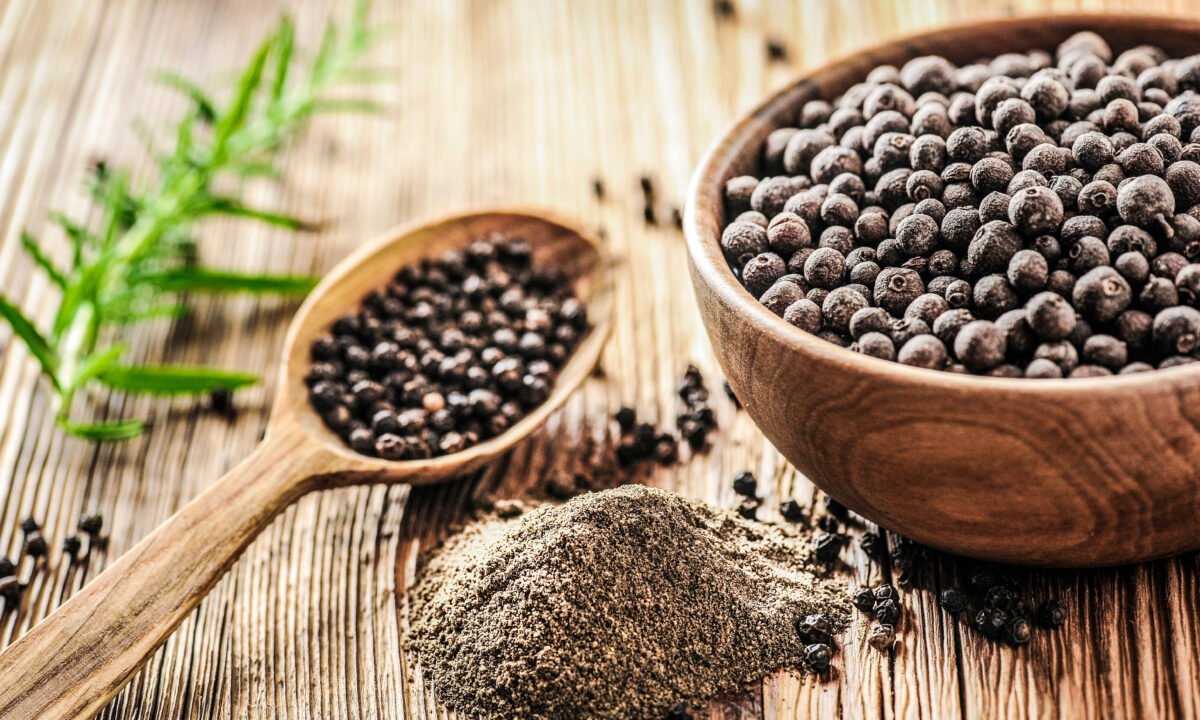Black Pepper, the ‘King of Spices’–5 Health Benefits You Should Know

Black pepper, often referred to as the “king of spices,” is a popular culinary spice known for its distinct pungent flavor that comes from its alkaloid component, piperine. Black pepper is an important health food that may help prevent and control tumor growth, improve gastrointestinal health, and possess antioxidant and antibacterial properties.
Pepper originated in India, where it has been cultivated for thousands of years, and was introduced to the West during the reign of Alexander the Great in the fourth century B.C. In ancient times, pepper was considered a precious commodity, often used as a form of currency for taxation and tribute, and even served as a universal medium of exchange similar to gold.
Pepper is a flowering vine belonging to the Piperaceae family, and its dried fruit is used as a spice and seasoning. The two most common varieties are black pepper, which is made from the unripe fruit of the pepper vine, and white pepper, which is made by processing the fully ripe fruit.
According to data from the U.S. Department of Agriculture FoodData Central, black pepper contains nutrients such as magnesium, vitamin K, iron, and fiber. Studies have shown that compared to white pepper, black pepper extract contains more polyphenols and has higher antioxidant and free-radical scavenging activities.
Concomitant use of vitamins and minerals with piperine in pepper can increase their bioavailability in the body. A study published in Nutrients in 2020 showed that piperine compounds can facilitate the absorption of substances such as iron and beta-carotene, especially when given in partnership with curcumin.
In addition, black pepper offers the following five major benefits for the human body:
1. Combat Obesity
South Korean researchers discovered through laboratory studies and computer models that piperine can interfere with the activity of genes responsible for controlling the formation of new fat cells, thereby preventing their formation. During this process, piperine may also trigger a metabolic chain reaction to help regulate fat in other ways.
The researchers suggested that this finding could lead to the wider use of piperine or black pepper extract to combat obesity. The study was published in the Journal of Agricultural and Food Chemistry in 2012.
2. Prevent and Manage Cancer
A study conducted by the University of Michigan Cancer Center found that piperine may help prevent breast cancer.
The researchers prepared high-concentration solutions of curcumin from turmeric and piperine from black pepper, and found that both compounds can inhibit the proliferation of breast stem cells. Furthermore, the inhibitory effect is even more significant when the two are combined, and they do not affect the function of normal breast cells.
3. Protect the Cardiovascular System
Clinical trials have confirmed that piperine can prevent and treat various chronic diseases, including hypertension, diabetes, neurological disorders, cardiovascular diseases, etc.
A study found that piperine can help eliminate excess cholesterol in the blood, preventing the accumulation of cholesterol in macrophages that can lead to atherosclerosis. It can also promote the transportation of cholesterol in blood vessels to the liver to form bile, which is then released into the small intestine for excretion from the body through feces.
4. Promote Digestion
Additionally, piperine can promote digestion by stimulating the secretion of digestive enzymes. A literature review published in the journal Critical Reviews in Food Science and Nutrition in 2007 showed that dietary piperine can stimulate the pancreas to secrete digestive enzymes, thereby improving digestive function and speeding up the passage of food through the digestive tract. Spices like black pepper can also enhance the activity of salivary amylase, pancreatic protease, and pancreatic lipase, as well as promote the secretion of bile acids.
In addition to stimulating the secretion of digestive enzymes, piperine can also help to increase the absorption capacity of small intestinal cells.
5. Boost Immunity
A study published in the Journal of Medicinal Food in 2010 indicated that black pepper exerts immunomodulatory and anti-tumor activities, making it a natural agent for maintaining and promoting a healthy immune system. Clinical trials have also confirmed that piperine can help prevent viral, bacterial, and fungal infections.
Dr. Pei-Chen Lin, the director of Li Xiang Chinese Medicine Clinic in Taipei, Taiwan, wrote on the clinic’s official website about the nutritional and health benefits of pepper. According to Lin, pepper can effectively dispel coldness and promote digestion.
White pepper has higher medicinal value and is commonly used in traditional Chinese medicine to aid digestion, relieve greasiness, stimulate appetite, and alleviate abdominal bloating. Black pepper, with its strong flavor, is well-suited for cooking, particularly for removing fishy odors when cooking fish.
Lin shared two ways to consume black pepper:
1. Black Sugar and Pepper Water
To treat colds, crush some black pepper and mix it with black sugar and hot water for consumption. For colds caused by exposure to cold, it is recommended to consume it in the early stage of symptoms for the best results.
In addition, this remedy is effective for treating stomach problems caused by coldness and cold-induced diseases. For example, it can be consumed to relieve symptoms such as stomach upset and pain caused by eating watermelon or ice during the summer.
2. Potatoes With Black Pepper
Steam 200 grams of potatoes in a steamer, mash them into a puree, mix thoroughly with 5 grams of butter, and add a small amount of crushed black pepper before serving.
Pepper available in the market can be classified into pepper powder and peppercorn. According to Lin, although pepper powder is more convenient, its active ingredients tend to slowly break down and evaporate over time. Additionally, pepper powder often contains added salt. Therefore, she recommends purchasing peppercorns and grinding them into pepper flakes as needed for a fresher taste. While pepper is suitable for refrigerated storage, it is best not to purchase too much at once to avoid moisture and spoilage.
Lin emphasized that black pepper is considered a “heaty” food, which means it may not be suitable for individuals with acne or constipation. Those who experience dry mouth and excessive thirst should also avoid consuming too much black pepper. Additionally, overconsumption of pepper can potentially harm the lungs, so people with poor lung function should limit their intake of black pepper.




